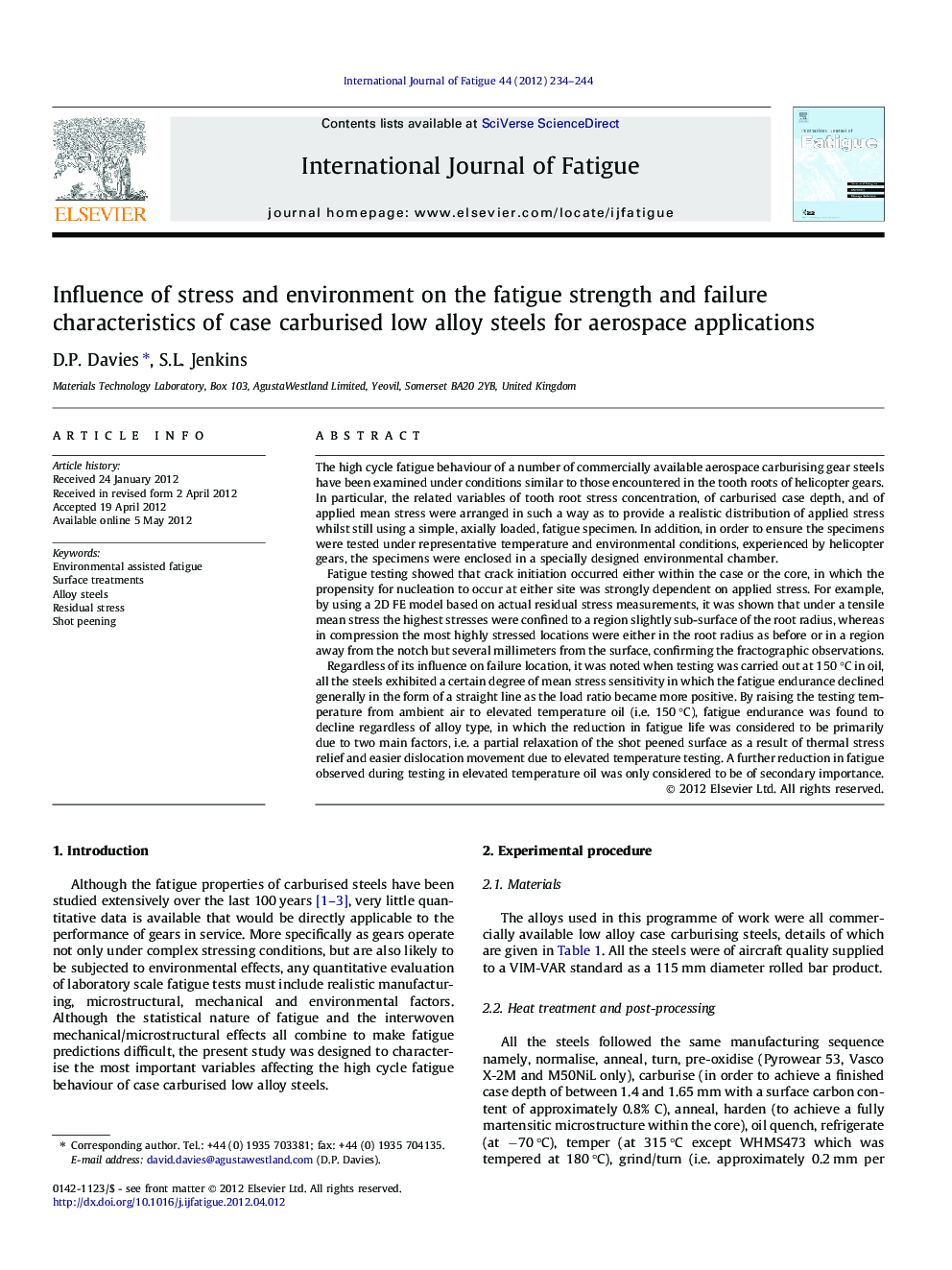| Article ID | Journal | Published Year | Pages | File Type |
|---|---|---|---|---|
| 778319 | International Journal of Fatigue | 2012 | 11 Pages |
The high cycle fatigue behaviour of a number of commercially available aerospace carburising gear steels have been examined under conditions similar to those encountered in the tooth roots of helicopter gears. In particular, the related variables of tooth root stress concentration, of carburised case depth, and of applied mean stress were arranged in such a way as to provide a realistic distribution of applied stress whilst still using a simple, axially loaded, fatigue specimen. In addition, in order to ensure the specimens were tested under representative temperature and environmental conditions, experienced by helicopter gears, the specimens were enclosed in a specially designed environmental chamber.Fatigue testing showed that crack initiation occurred either within the case or the core, in which the propensity for nucleation to occur at either site was strongly dependent on applied stress. For example, by using a 2D FE model based on actual residual stress measurements, it was shown that under a tensile mean stress the highest stresses were confined to a region slightly sub-surface of the root radius, whereas in compression the most highly stressed locations were either in the root radius as before or in a region away from the notch but several millimeters from the surface, confirming the fractographic observations.Regardless of its influence on failure location, it was noted when testing was carried out at 150 °C in oil, all the steels exhibited a certain degree of mean stress sensitivity in which the fatigue endurance declined generally in the form of a straight line as the load ratio became more positive. By raising the testing temperature from ambient air to elevated temperature oil (i.e. 150 °C), fatigue endurance was found to decline regardless of alloy type, in which the reduction in fatigue life was considered to be primarily due to two main factors, i.e. a partial relaxation of the shot peened surface as a result of thermal stress relief and easier dislocation movement due to elevated temperature testing. A further reduction in fatigue observed during testing in elevated temperature oil was only considered to be of secondary importance.
► The effect environment and stress has on fatigue of carburised steel has been studied. ► Both mean and alternating stress have been shown to influence failure mode. ► HCF performance was lowered when testing was carried out in elevated temperature oil.
